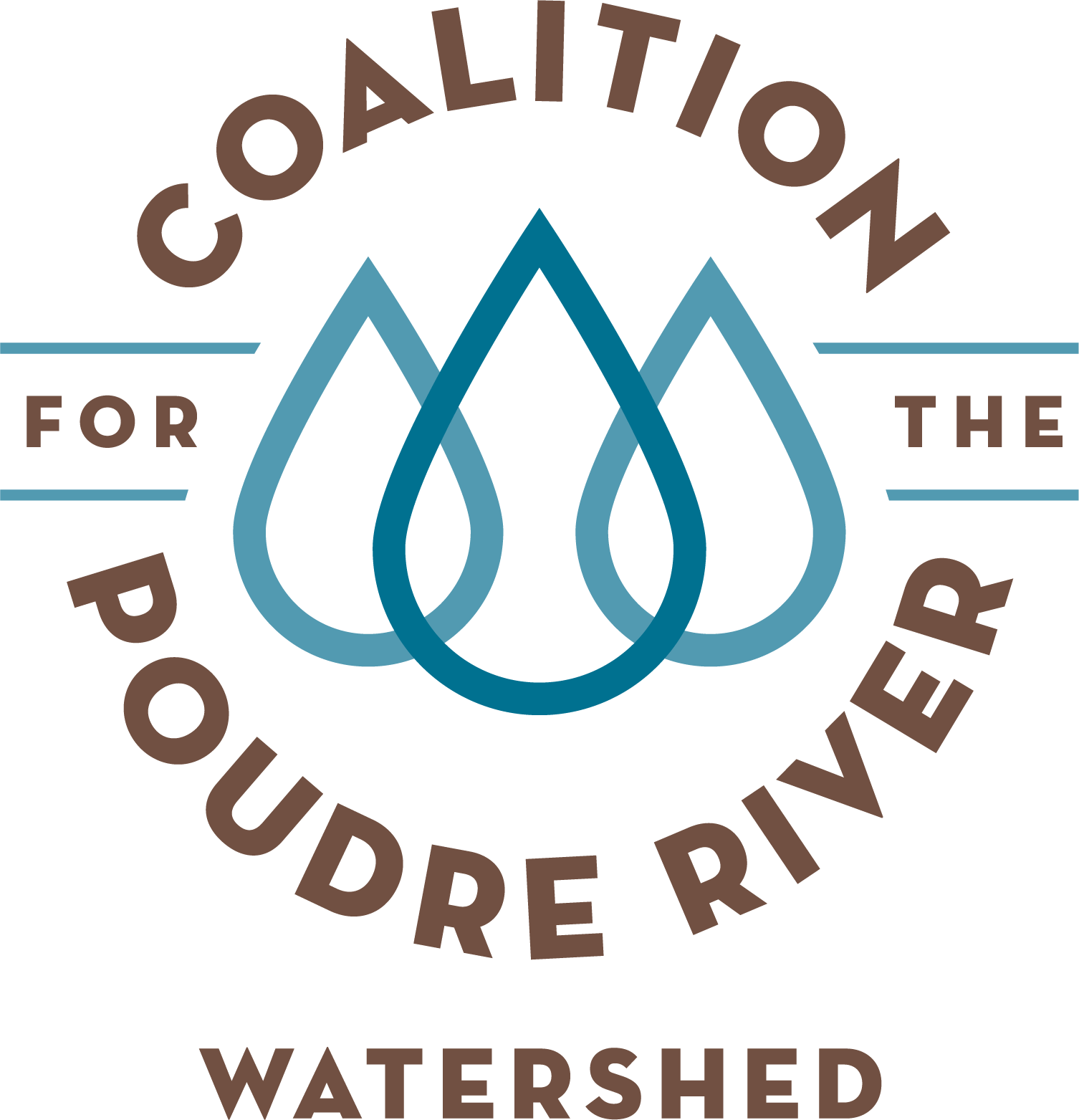Guest Blog: Managing for Post-Fire Water Quality Impacts
Black water on the Poudre River near the City of Fort Collins raw water intake on June 28.
by Jared Heath, Watershed Specialist, City of Fort Collins Utilities
Fort Collins Utilities is one of several water districts that provides drinking water to Fort Collins residents, businesses, and industries in Northern Colorado. Fort Collins Utilities serves more than 35,000 customers within the Utilities service area and receives its raw water supplies from both the Cache la Poudre River and Horsetooth Reservoir. Both source water supplies were severely impacted by wildfires in 2020.
The City of Fort Collins Utilities is committed to providing safe, reliable drinking water to our community. To meet this commitment, the Upper Cache la Poudre (CLP) Watershed Collaborative Water Quality Monitoring Program was established in 2008 between the City of Fort Collins, the City of Greeley, and Soldier Canyon Water Authority, to help meet present and future drinking water treatment goals. Water quality monitoring of our raw, CLP River drinking water supply is conducted from April through November and monitoring locations are strategically located throughout the Upper CLP watershed (see Figure 1). The network of water quality monitoring sites across the watershed and long-term data record that has been collected over the past 13 years provide valuable information about the health of our source watershed and quality of our raw water supply, especially following watershed scale impacts like the Cameron Peak wildfire.
In addition to routine water quality monitoring in the Upper Poudre Watershed, water quality monitoring instruments are located at two locations upstream of the City of Fort Collins Poudre River water supply intake facility. This monitoring system provides water treatment operations near real-time water quality data to quickly respond to changes in Poudre River water quality that result from runoff from wildfire burn areas or other upstream events.
Over the summer 2021 season, high-intensity precipitation events driven by the summer monsoon caused several significant post-fire debris flows and flooding events on the Poudre River, including the deadly and destructive Black Hollow flood in July. Many of these events resulted in severely impacted water quality (“black water”) due to the elevated amounts of sediment and ash being delivered from burned hillslopes and drainages into the Poudre River. The water quality monitoring instruments detected these events and provided water treatment plant operators with early warning to effectively respond and minimize impacts to the City’s drinking water quality (see Figure 2 below). In several instances, Fort Collins Water Treatment Facility shut down its raw water intake on the Poudre River for an extended period and relied on its other raw water supply stored in Horsetooth Reservoir.
Figure 2 - Turbidity measured in the Poudre River at the Manners Bridge real-time water quality instruments. Several rain events over the Cameron Peak burn scar caused turbidity in the river to increase rapidly over a short amount of time and remain elevated for several hours before returning to normal. Note: These data are preliminary and subject to change and some outlier data may be present.
It is expected that the impacts from the Cameron Peak wildfire will continue for many years. The City of Fort Collins Utilities will continue to rely on its strong partnerships with CPRW and and other stakeholders, a robust water quality monitoring program, and redundancy in its water supplies to continue providing customers with reliable, high-quality drinking water.
Click here to receive periodic updates about City of Fort Collins’ water supply status, water shortage response, and watershed recovery efforts.



